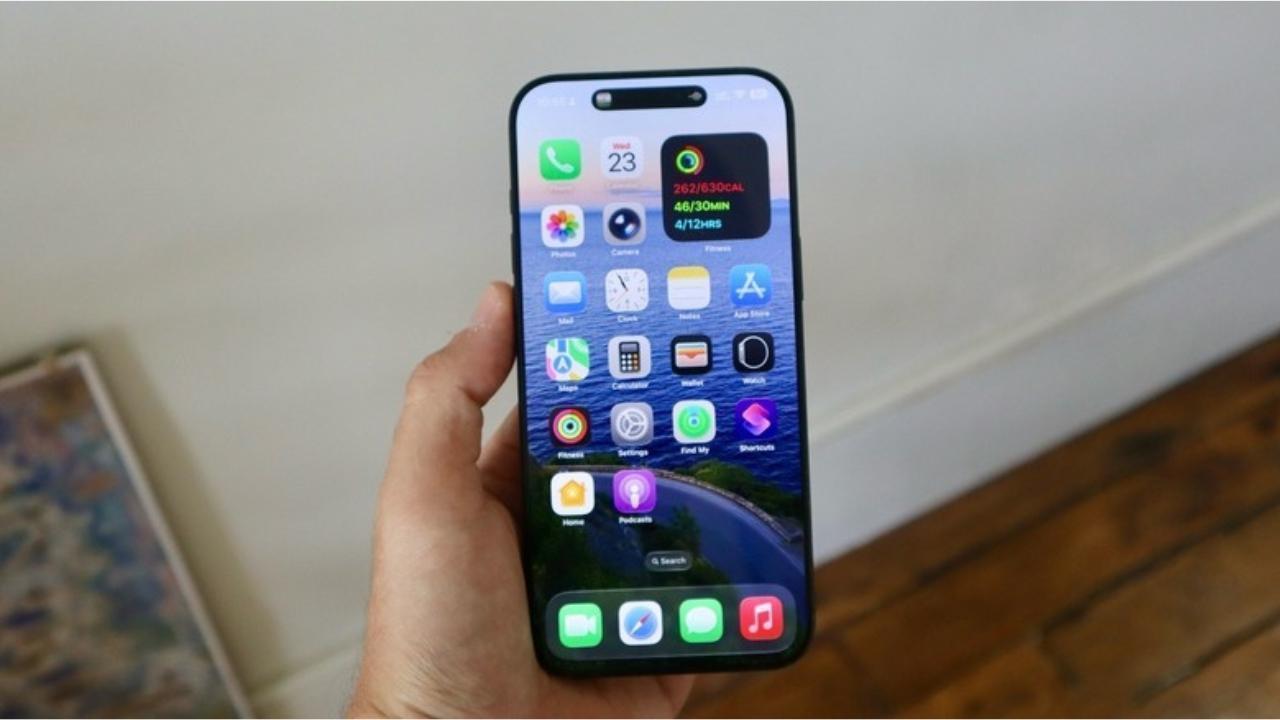You have not yet added any article to your bookmarks!

Join 10k+ people to get notified about new posts, news and tips.
Do not worry we don't spam!

Post by : Anis Farhan
Once upon a time, we could recall ten-digit phone numbers, birthdays of our loved ones, and important appointments without a blinking reminder from our devices. Today, our smartphones do all the remembering for us—and we barely notice. This shift in how we manage and store information is giving rise to a troubling trend known as "digital amnesia"—a phenomenon where individuals forget information because they trust a digital device to remember it for them. But is this just a harmless byproduct of convenience, or are we paying a bigger cognitive price than we realize?
Digital amnesia refers to the experience of forgetting information that you believe a digital device will remember for you. This can include phone numbers, directions, passwords, appointments, or even facts and names. The term was popularized by a 2015 study conducted by Kaspersky Lab, which showed that over 90% of respondents in the US and Europe admitted to using the internet as an extension of their memory.
Our increasing reliance on smartphones, cloud storage, and AI assistants has fundamentally altered the way our brain handles information. While it’s more convenient to store contacts in our phone or ask Siri for directions, doing so has reduced the mental exercise that once helped us retain and recall information more efficiently.
Human memory is not infinite, and our brains are designed to filter and forget information that isn’t deemed "necessary." When a person knows that they can easily access information via their phone or computer, their brain may classify that information as low-priority. This leads to reduced encoding into long-term memory.
Furthermore, constantly shifting between apps, tabs, and notifications weakens our ability to focus—an essential component of memory consolidation. Multitasking through multiple digital platforms reduces attention spans, which directly impacts how deeply we process and retain information.
In our daily routines, we now depend on GPS to navigate familiar routes, calendars to remember events, and apps to wake us up and put us to sleep. While this delegation of memory tasks to digital devices offers convenience, it’s silently chipping away at our mental agility.
Several studies have shown a correlation between excessive smartphone usage and declining memory, especially in younger generations. Teachers report students being less likely to retain classroom material unless it is stored or noted digitally. In the workplace, over-reliance on scheduling and task management tools has led to employees struggling with memory recall during meetings or multitasking under pressure.
Neuroscientists suggest that our brains adapt based on usage—a concept known as neuroplasticity. When we repeatedly rely on our phones to recall information, the neural pathways associated with memory may weaken. The hippocampus, the part of the brain responsible for forming new memories, may become less active when we trust our devices to remember everything for us.
In contrast, the prefrontal cortex—associated with decision-making and managing digital tools—may become more active. This neurological trade-off means that while we may become better at using devices efficiently, we’re also becoming less capable of storing and retrieving knowledge independently.
Digital amnesia doesn’t just affect memory; it alters our emotional and psychological well-being too. There's growing evidence linking heavy smartphone reliance with increased anxiety levels. A person who loses their phone may feel not just disconnected but also cognitively lost—unable to recall basic information they once knew by heart.
In children and adolescents, early exposure to constant digital aid is leading to delayed memory development. In adults, dependency on digital memory is associated with poor sleep, reduced creativity, and a feeling of mental fatigue.
Educators worldwide are facing a new challenge—how to teach students to remember when their instinct is to "Google it later." The easy availability of information has reduced the motivation to study or memorize deeply. Teachers find that students struggle to retain even key historical facts or scientific formulas, instead relying on bookmarked notes or saved screenshots.
This has created a generational shift in learning habits, where understanding and retention have been replaced by digital shortcuts. It raises the question: Is our education system adapting fast enough to teach critical thinking and conceptual memory in the digital age?
Not only memory but other cognitive skills are at stake. The overuse of digital assistants can lead to a decline in problem-solving skills, spatial awareness (thanks to GPS reliance), and even basic math abilities. Many users reach for a calculator for even the simplest arithmetic problems. This pattern undermines confidence in personal intellectual ability and contributes to a form of "learned helplessness."
Thankfully, digital amnesia isn't irreversible. By practicing conscious memory techniques and reducing digital dependence, individuals can retrain their brains to remember better. Here are a few evidence-based ways to counteract the effects:
Practice Recall: Instead of Googling, try recalling the information from memory first.
Use Mnemonics: Memory devices like acronyms and rhymes help encode information.
Limit Digital Cues: Reduce dependency on alerts and reminders; try to remember tasks manually.
Read More Books: Long-form reading enhances focus and memory retention.
Engage in Offline Hobbies: Activities like chess, puzzles, and even cooking require focus and sequential memory.
Physical Exercise: Regular movement increases blood flow to the brain and supports memory function.
Mindfulness Training: Meditation and deep breathing improve concentration and reduce distractions.
Surprisingly, many tech companies are aware of digital amnesia but are doing little to reverse its effects. If anything, they design products that deepen reliance—offering more features that "remember for you" such as voice memos, auto-suggestions, or smart scheduling.
However, a few developers are exploring cognitive-friendly solutions. Some educational apps now promote learning by repetition and memory games. Digital detox features are being introduced in operating systems to track screen time and encourage breaks. But the core business model of tech companies—based on user attention—means that they benefit from your dependency more than your independence.
The human mind is one of the most powerful tools on the planet. Yet in an age of artificial intelligence and cloud memory, its unique abilities are slowly being outsourced. If digital amnesia continues at this pace, future generations may struggle with basic recall without technical aid.
This doesn't mean we abandon technology altogether. Rather, we must strike a balance—leveraging the power of smartphones without letting them replace our brain’s natural capabilities. Remembering is a skill—and like all skills, it requires regular practice to stay sharp.
This article is intended for informational and educational purposes only. It does not offer medical or psychological advice. Readers concerned about memory issues should consult a healthcare professional or a licensed cognitive therapist.










Trump Plans First Meeting of New Peace Board in Washington This February
Former U.S. President Donald Trump is reportedly preparing to convene the inaugural session of a new

Apple’s iOS 26.3 Update Is Here — Why Millions of iPhone Users Should Install It Now
Apple has rolled out iOS 26.3 as a critical update for eligible iPhones, bringing important security

Pam Bondi’s Explosive Epstein Hearing: Four Moments That Defined the Testimony
US Attorney General Pam Bondi faced intense questioning in a House Judiciary Committee hearing that

Epic T20WC Thriller: South Africa Triumphs Over Afghanistan in Double Super Over Clash
An exhilarating account of one of the most dramatic matches in ICC Men’s T20 World Cup 2026 history,

Abhishek Sharma Hospitalised With Stomach Infection, Doubtful for India’s T20 World Cup Match Against Namibia
Indian opening batter Abhishek Sharma has been hospitalised with a stomach infection and is unlikely

Mass Shooting in British Columbia Leaves 10 Dead in One of Canada’s Deadliest Attacks
A tragic mass shooting at a high school and nearby residence in Tumbler Ridge, British Columbia, has